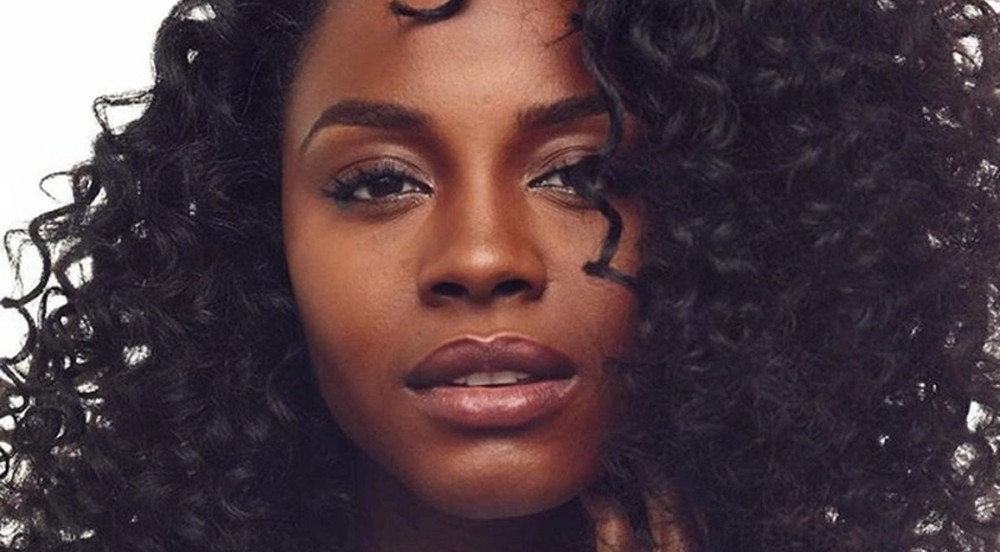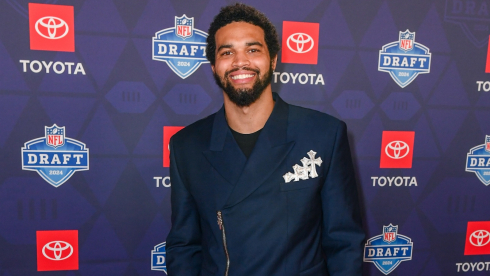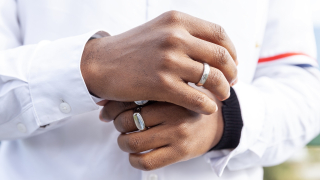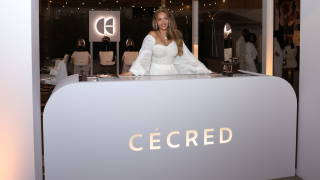Deborah Ayorinde is putting the supernatural aside to take on an even scarier foe: the family. The Them star is starring in the new Prime Video series Riches, which will premiere December 2nd. The limited production follows the Richards family, which has found fame and fortune in the U.K. beauty industry. Estranged daughter Nina Richards, played by Ayorinde, returns home after the untimely death of her father, only to learn the man who she hasn’t spoken to in years has left her in charge of the family business.
That doesn’t sit well with his second wife Claudia Richards (Sara Niles), who feels that her children should be in line for the throne. What follows is a grab for power and position, and the search for the real truth behind her father’s death. “All of them are fighting over the wealth, power and control of this empire, and it gets really messy and really juicy,” Ayorinde declares.
EBONY caught up with the star to learn more about her delicious new role and how her Nigerian culture is playing a major part in the series’ storytelling.
EBONY: You’re playing Nina Richards, who escaped to the States, but is compelled to return home when she learns of her father’s demise.
Deborah Ayorinde: She is a woman, like many women I know, who just kind of made it happen and made it work, despite the circumstances. She moved to the States after her parents split up when she was a kid. And she has been summoned back because of her father's passing. For me, I've just been really proud to play Nina just because I feel she's just so strong and badass. She's near and dear to my heart.
What else will we learn about her during the series?
She's pretty vulnerable, though she only shows certain people her vulnerability. What I love about this story is that you really get to see why she's become very “take care of business.” A lot of times you see these characters show up on screen, and you don't really understand why they become that way. But you really see her journey throughout and why she's become who she's become.
We do get a little of her history when we see her mom being treated badly in a beauty store when Nina is a child. Is that one of the reasons she returns home?
Nina would like to think that and she convinces herself at first that it's about her mom. But I think after a while, she realizes that a lot of her decision to stay is about herself and what she's discovering within herself.
The series is steeped in Nigerian British culture. Why is that so important to bring to screen?
My favorite thing about this show is the representation. You have not only Black British people represented, you have Caribbean, Nigerian and African American—Nina is, in a sense, is American as well because she spent so much time there. That reflects a lot of my story as well. It's been a blessing to see that representation on screen and bridge that gap between Black people everywhere. It’s something that I'm so proud of when it comes to the show.
Your background is African American, British and Nigerian. Did you tap into that for the series?
For me, Nina’s story is probably the closest to my own personal story that I've ever played in my career thus far. When I read the script, I literally asked [series creator] Abby Ajayi because it shocked me that we hadn't met before, this is so much of my story in this script. The show has, from the beginning, been very personal to me. It wasn't hard for me to understand Nina: it wasn't hard for me to understand the nuances of her life and why she is the way that she is. I feel seen, to be honest.
EBONY is all about “Moving Black Forward.” How do you define moving Black forward?
By encouraging us to be our complete selves and understanding that while we're not a monolith, we're also connected in a really beautiful way. And I think that the more and more we embrace both things, the fact that we are our differences and the ways that we're the same, I really think that that will really move us forward in a powerful way.













